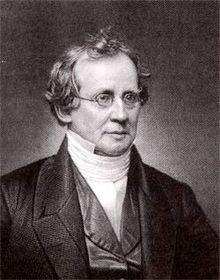The Protestant doctrine of imputation
How Protestantism recovered the soul-enriching doctrine of double imputation.
30 APRIL 2016 · 10:29 CET

At the beginning of the Protestant Reformation, Martin Luther (1483-1546) hit out at the liberal Catholic scholar Erasmus (1466-1536) over his airy fairy approach to Christian doctrine.
Luther was convinced that much more than a moral spring clean was needed within the shadowy walls of sixteenth century Catholicism. So rather than forming a coalition with Erasmus in the name of evangelical ethics, the German Reformer wanted to get down to the real nitty-gritty doctrinal issues that had been leading Rome astray for centuries.
01.- Luther’s Breakthrough
Thanks to Luther’s rugged pro-dogmatic approach, he brought numerous Scriptural doctrines back into the forefront of European thought, the chief of which was undoubtedly that of justification by faith alone. It was, after all, the Pauline truth that “the just shall live by faith” that revolutionized the tormented monk’s life.
In Luther’s own autobiographical words: “I meditated night and day on those words until at last, by the mercy of God, I noticed their context: ‘The righteousness of God is revealed in it, as it is written: “The righteous person shall live by faith”’ (Romans 1:17). I began to understand that in this verse the ‘righteousness of God’ means the way in which a righteous person lives through a gift of God –that is, by faith. I began to understand that this verse means that the righteousness of God is revealed through the Gospel, but it is a passive righteousness –that is, it is that by which the merciful God makes us righteous by faith, as it is written: “The righteous person shall live by faith”. All at once I felt that I had been born again and entered into paradise itself through open gates. Immediately I saw the whole of Scripture in a different light”.
God’s righteousness, then, was no longer something that was going to devour Luther in ferocious wrath but rather a free gift bestowed upon the German by the pure unmerited grace of God. It was this discovery which led Luther to proclaim the doctrine of justification by faith alone as the chief article upon which the church either stands or falls. Rome had denied it hence her desperate fallen condition.
02.- What is Imputation?

Like justification, imputation is a judicial, forensic and legal term. It has to do with the status or standing of a person; not with his or her nature. The chief presupposition is that all humanity is condemned in Adam. Everyone is born into a radically sinful race. We are all fallen. Adam´s sin was imputed to us even before we were born. As well as the sin we inherit upon being conceived we also commit endless transgressions throughout the course of our lives. In this sense, as Charles Spurgeon (1834-1892) put it, we are “doubly guilty”.
Given man’s guilty condemned condition before the most holy God, one of two things must happen. Either the sinner will perish eternally under the righteous indignation of the Lord or else someone else must be punished in the sinner’s place so that the condemned offender may go free. But is there a “someone else”? Did anyone out there take the place of corrupt humankind? The magnificent news of the Christian Gospel is that the blessed Lord Jesus Christ did so. He took the sinner’s place. He was punished in their stead. He appeased the wrath of God that was bound to strike all outlaws dead. But how?
In Protestant language there was a double imputation at work. On the one hand the sins of many were imputed unto Jesus Christ. They were reckoned to be His. Our sin and transgressions were put into Christ’s account.
On the other hand the impeccable righteousness of the beloved Lord Jesus (both active and passive) was imputed unto all of those who believe upon His name. This means that Jesus’ perfect merit was reckoned to be ours. His obedience and sinlessness were put into the sinner’s account. Therefore God now looks upon believers through the spectacles of Christ. No longer do we stand condemned and damned before the Lord, but forgiven from all sin and equipped with a perfect righteousness which guarantees us eternal life and bliss.
Imputation, therefore, affects both Christ and the believer. Few texts display this beautiful exchange clearer than the breathtaking verse of 2 Corinthians 5:21, “For He has made Him to be sin for us, who knew no sin; that we might be the righteousness of God in Him”. Our sin is counted as if it were Christ’s whereas His righteousness is reckoned as if it were His. What a Gospel! What astoundingly glorious news!
03.- Conclusion
Given the liberating force that is bound up with the proclamation of the free imputation of Christ’s perfect righteousness by faith, it is perhaps no surprise that the devil has waged a violent warfare against such a doctrine ever since the day Luther made his life-changing breakthrough. Imputation divided Luther from Erasmus; Protestantism from Rome; and today it continues to divide conservative Evangelicals from liberals. Even back in the heyday of English Puritanism John Owen (1616-83) lamented that “nothing in religion is more maligned, more reproached, more despised, than the imputation of righteousness unto us, or an imputed righteousness”.
Perhaps the greatest tragedy of all is that once double imputation is flagrantly “maligned”, “reproached” and “despised” then the biblical Gospel disappears. In fact, there is no Good News and there can be no Good News without imputation.
So blessed be God for 2 Corinthians 5:21.
Blessed be God for Martin Luther’s discovery.
Blessed be God for the soul-enriching Protestant doctrine of double imputation.
Published in: Evangelical Focus - Fresh Breeze - The Protestant doctrine of imputation
